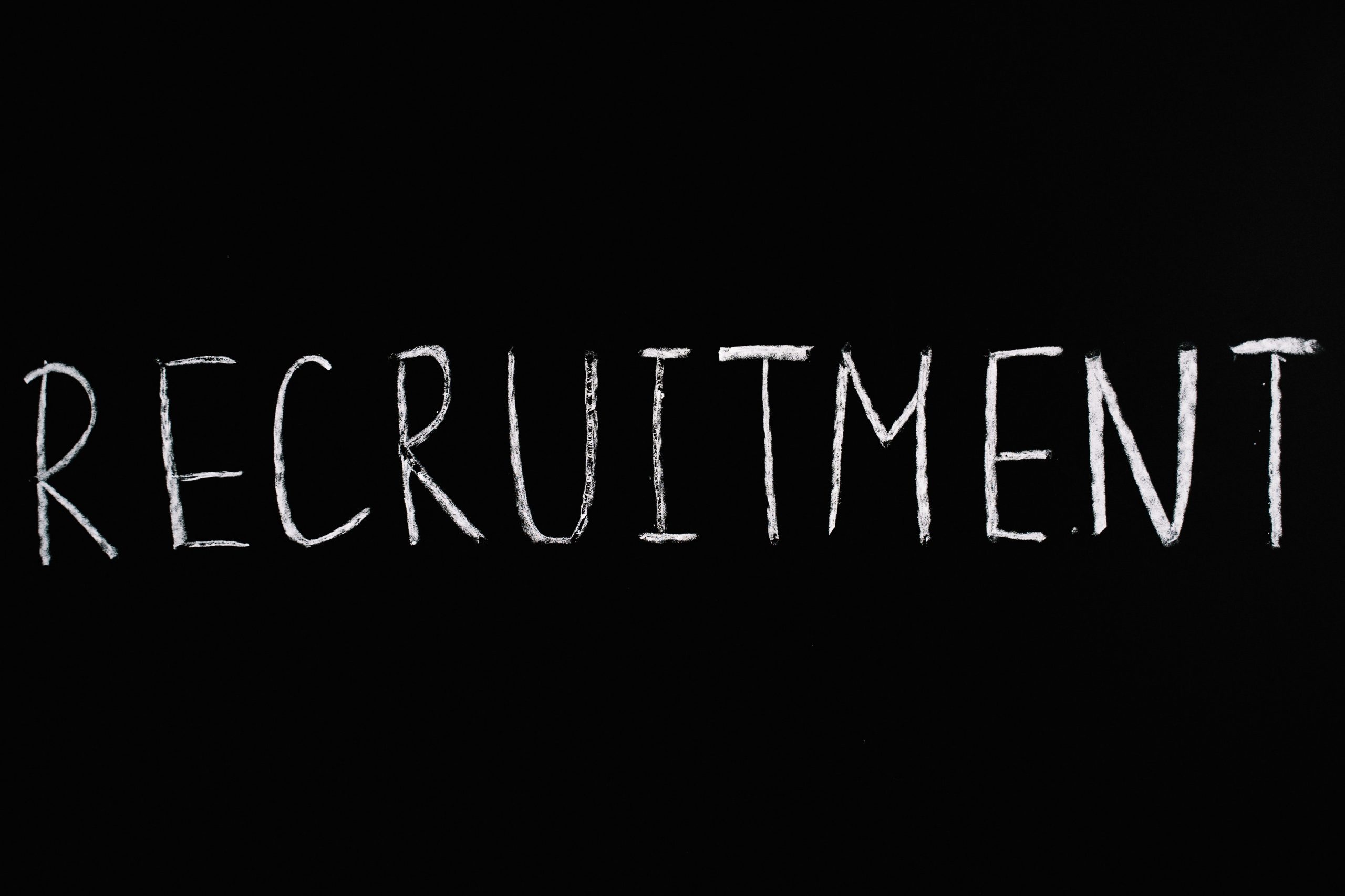
Insourcing: Good, Bad or Ugly?
Recruitment is a critical process for any organisation looking to hire talented and skilled employees. One of the decisions that companies must make is whether to outsource or insource their recruitment process. Insourcing recruitment means handling the entire process in-house, while outsourcing recruitment involves hiring a third-party agency to handle elements or all of the process. In this blog, we will explore the pros and cons of insourcing recruitment.
What is Insourcing?
Recruitment insourcing is the practice of handling the entire recruitment process within an organisation, without outsourcing any of the tasks to external recruitment agencies or consultants. This means that all recruitment activities, (or as much as possible) such as sourcing, screening, interviewing, and hiring, are managed by the organisation’s internal recruitment team. Recruitment insourcing allows organisations to have complete control over the recruitment process, including the ability to customise the process to their specific needs and culture, and build internal recruitment expertise. However, insourcing does require significant investment in terms of resources, including time, money, and personnel; these need bearing in mind.
Why are we hearing more and more about Insourcing?
The insourcing of recruitment is becoming more prevalent for several reasons, including factors such as control, brand and brand building as well as other aspects like knowledge transfer, which are becoming ever more important considerations. We tackle these elements later on in this piece however, for us, the main driver and the one we’d like to focus on for why we’re hearing so much about insourcing currently is: cost. It’s always cost, isn’t it? But in today’s climate, cost has an even bigger impact and we’re seeing this through an increase in organisations insourcing more and more elements of their recruitment process.
In plain English, insourcing recruitment tends to be more cost-effective than outsourcing recruitment. While outsourcing recruitment involves paying an agency fee, insourcing recruitment involves only the cost of the resources used in the process. This cost can be managed effectively, making it easier for companies to budget for recruitment expenses.
Overall, insourcing recruitment is becoming more prevalent because it offers several benefits that organisations find attractive, including cost-effectiveness as well as greater control of their recruitment and brand. With the help of technology, which is also becoming ever more prevalent, organisations can manage the recruitment process more easily and efficiently, making Insourcing as a model a viable option for many businesses.
Pros of Insourcing Recruitment:
Cost: Insourcing recruitment can be more cost-effective than outsourcing recruitment. While outsourcing recruitment involves paying agency fees, insourcing recruitment involves only the cost of your talent acquisition resources. This cost can be managed effectively, making it easier for companies to budget for recruitment expenses.
Control: Insourcing recruitment gives organisations greater control over the entire process. They can ensure that the recruitment process is aligned with their business goals and culture. It also allows them to make immediate changes in response to the company’s evolving recruitment needs.
Brand building: Insourcing recruitment can help companies build their brand by promoting their organisational culture, values, and benefits. By showcasing the company’s strengths and benefits, they can attract the right candidates who align with their values and mission.
Knowledge transfer: Insourcing recruitment enables companies to build in-house expertise in recruitment. The knowledge and skills gained through the recruitment process can be transferred to other areas of the organisation, leading to better recruitment practices and overall talent management.
Cons of Insourcing Recruitment
Resource-intensive: Insourcing recruitment requires significant resources, including time, money, and personnel. It may also require the development of specialised skills, which can be time-consuming and expensive to acquire. Moving to an in-house or insourced model requires a lot of planning and a big investment.
Limited reach: Insourcing recruitment may limit an organisation’s access to a broad range of candidates. Unlike recruitment agencies, which tend to have a wider network, more software tools and reach, insourcing recruitment may limit an organisation’s ability to attract candidates from outside their immediate networks.
Risk: Insourcing recruitment carries some risk. The recruitment process must be conducted in compliance with employment laws and regulations, and the company may be held liable for any errors or omissions in the process. Recruitment is also an ongoing process, and any failure to hire the right candidates can have long-term consequences for a business or organisation.
Cost: I know we listed cost as a pro above but hear us out – unfortunately everything isn’t so black and white as we’d perhaps like and there are nuances that exist, particularly where cost is concerned. Not to mention individual bias. Broadly speaking, as an agency, we have access to all of the major job boards as well as their databases, and by supporting a high number of specialist job boards we also subscribe to specific skills. Add to this the various AI and scraping tools, social media targeting, and other software tools we’re using, and it comes to a substantial cost each month often with long term contracts in place. Agencies typically pay a much lower cost than direct employers for all of these things, which means they have more tools to call upon. And also factor in an insourced recruitment team is a fixed cost, and to attract a “good” internal recruiter the market tells us you need to pay an absolute minimum of £45,000, probably closer to £50,000, and then employer on-costs, bonuses and benefits – your cost commitment starts to rapidly rise before any hiring has taken place.
Also, some costs will be higher to your internal team than they would be for a third-party outsourcer, for example. advertising costs at low volume compared to an agency are typically more expensive.
Linked to the above point, costs of wages, on-costs, licences, ATS, job boards etc., when added up, aren’t too different than with an agency as some of the agency costs are spread across several clients. So, depending on what your overall costs might be, you should always ask yourself whether the additional responsibilities, work, pressure etc., of an insourced model are worth it, particularly if the saving is only a marginal one?
Lack of flexibility: Insourcing recruitment may lack the flexibility of outsourcing recruitment. It may be challenging to adjust the recruitment process to meet fluctuating recruitment demands, which can be a disadvantage for organisations experiencing growth or fluctuating recruitment needs.
Something else that needs to be considered is holiday and sickness cover. Can your own internal team manage this and how might you mitigate against resource issues?
Is there a middle ground?
There is a middle position to be had if insourcing is something that you’re exploring. As with most topics, people often tend to be drawn to the extremes, but a lot of organisations are recognising that there are both pros and cons to insourcing. For instance, you may wish to own the entirety of your recruitment process – the resources/staff, the process, the technology – however this may put a strain on resources for building out your recruitment brand and Employer Value Proposition (EVP). In such a case, some organisations are recognising the best of both worlds and adopting a hybrid solution whereby they own the hard recruitment process as described above, they are outsourcing some of the softer elements of the overall recruitment process, like the EVP, to expert recruitment organisations.
Don’t be afraid of the ‘hybrid’ solution
Other ways include adopting a hybrid model, which might entail your insourced/in-house team managing the majority of easy-to-fill roles whilst outsourcing the harder-to-fill roles to a third-party specialist, ensuring that all bases are covered, and your roles do not go unfilled. This is the approach the vast majority of FTSE organisations take, having the flexibility and agility to pick their battles to allow for not only niche skills but also peaks and troughs in demand. A hybrid model blends the best of both, all controlled by the internal team using trusted partners. It keeps costs manageable, promotes self-sourcing where possible, and also offers the added flexibility of calling in support whenever a role or sudden project demand hits.
Like anything, insourcing recruitment has its pros and cons. It can be cost-effective, promote brand building, and knowledge transfer within an organisation. However, it requires significant resources, carries some risk, and may lack the flexibility and agility sometimes required in recruitment. Ultimately, the decision to insource or outsource recruitment depends on the organisation’s goals, resources, and recruitment needs.
One thing we see time and again is companies, particularly scaling businesses, hire a Recruiter to ‘fill all of their jobs’. If you’re going to go down this road, and it’s definitely one with achievable long-term success for your business, you need to invest in more than just a salary and a desk. Think about the tools the person will need to be successful, how much budget can you set aside for them to buy-in the right tools for the job. Also consider what types of roles you’ll be recruiting, if it’s overwhelmingly Software Developers or Production Operatives, then the argument for an internal resource gets stronger. If however, your Recruiting resource will have an FD, two Security Guards, three Software Developers, a Marketing Assistant, three Cleaners and a Procurement Manager on their hitlist, then there’s another consideration: you want a generalist, not a specialist, with the jobs boards to support them. But then if Developers are the critical hire your business makes, won’t you want someone that knows that market?
Generally, an internal Recruiter should be able to manage 15 roles comfortably and an absolute maximum of 20 roles – this is at peak times not as a constant or they will burn out and look for a new internal role. Five candidates might be at offer stage and need minimal input by that stage, ten might be at various interview stages, and another five candidates might be the ones your Recruiter is actively searching for. So, if you have 40 roles open at any one time, you really need three Recruiters. You might be reading this thinking you can get away with one or maybe even two, but the reality is past a certain number of vacancies you’ll just be paying high salaries for what are essentially people with too many plates spinning to be effective at their core roles, and just administering a process. And they will, sooner rather than later, start looking for their next role because of their frustration and inability to make a difference.
If you choose to insource, look at the long-term strategy and goals, and make sure you’re monitoring success. Some key hiring metrics to track are time-to-hire, cost-per-hire etc. in order to get an understanding of where you are and where the improvements can come from. And be prepared to set your new team up for success, it’s never been harder to find talent than it is today. So, support them by not pulling the plug on suppliers straightaway; grow your direct delivery over time, 100% self-source is incredibly rare, and your Amazons and Googles – with their unlimited budgets – hover around the 80/20 split mark themselves.
The collective experiences we have within Your Talent Solutions have designed permanent, contract and temporary solutions in over 40 countries worldwide. So, if you’d like to understand the true cost of your current recruitment, and how much it would cost, as well as the steps required to insource as much as possible, please contact lazar@yourtalentsolutions.co.uk for a discussion.


